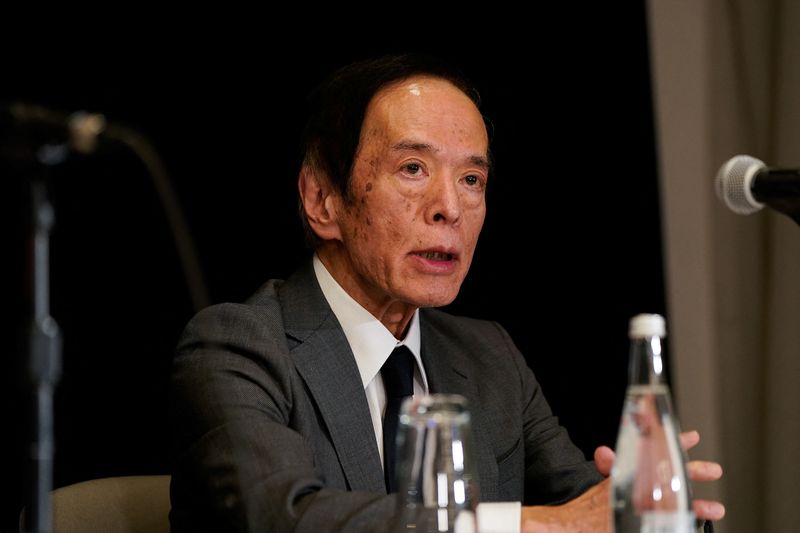
© Reuters. SUBMIT IMAGE: Bank of Japan Guv Kazuo Ueda takes part in a press conference at the Fairmont Washington D.C. Georgetown hotel in Washington, U.S., April 13, 2023. REUTERS/Elizabeth Frantz
By Leika Kihara
TOKYO (Reuters) -The Bank of Japan is warming to the concept of tweaking its questionable bond yield control policy later on this year, however will likely keep settings the same at next week’s conference as it waits for more proof of continual wage development, sources state.
Kazuo Ueda chairs his very first policy conference because ending up being BOJ guv on April 27-28 and his consultation has actually increased expectations the bank will start relaxing its ultra-loose settings – the only concern is when.
With worldwide economic downturn worries clouding the outlook, there is no agreement within the BOJ on how quickly it can end yield curve control (YCC) – a policy that sets a short-term rate of interest target of -0.1% and a 0.5% cap on the 10-year bond yield.
Nevertheless, 5 sources acquainted with the BOJ’s thinking state the favored method, in the meantime, is to persevere, which indicates the bank will make no significant instant modifications to YCC and its dovish policy assistance.
” Offered looming abroad financial dangers, it’s suitable to keep ultra-loose financial policy now,” stated among the sources, a view echoed by 2 more sources.
However the nine-member board might participate in a more vibrant dispute on the fate of YCC at its June 15-16 and July 27-28 conferences.
Doves in the BOJ see the requirement to invest a lot of time to make sure Japan’s economy can weather external headwinds, and enable companies to keep treking incomes next year – even if that implied missing out on the chance to phase out stimulus in the present healing cycle, a few of the sources state.
The BOJ bears in mind the risks of taking any early actions that might be translated as a withdrawal of financial assistance, with previous rate walkings in 2000 and 2006 having actually drawn strong political criticism as triggering economic downturn.
” The BOJ needs to prevent moistening public belief” by sending out a message that might be translated as an early method of an exit, among the sources stated, a view echoed by another source.
Others in the BOJ see scope to dispute a tweak perhaps in the coming months, pushed by huge pay walkings used by significant companies in yearly spring wage talks, the sources state.
A magnifying labour scarcity will likely keep business under pressure to trek incomes, even if the economy slows, according to those who see space for a near-term policy tweak.
” Japan’s wage characteristics seem altering. It’s possible for 2% inflation to be sustainably fulfilled,” one source stated.
In an indication the BOJ was growing positive about the outlook for incomes, the bank stated in a quarterly report on Thursday that pay walkings were expanding in numerous parts of the nation, even amongst smaller sized companies.
Amongst crucial elements that might form the dispute is a last tally of this year’s wage talk results, due out in early July, that will reveal whether little companies treked pay like their larger equivalents did, they state.
Market advancements will likewise be important in identifying the timing of a policy modify, they state.
As current issues in the worldwide banking sector make safe-haven Japanese federal government bonds (JGB) more appealing, the BOJ is under no instant pressure to modify YCC with the 10-year yield now hovering around 0.465%, off its 0.5% cap.
However the reserve bank might think about customizing its 10-year yield target or the allowance band set around it if restored upward pressure on JGB yields makes the expense of safeguarding the cap difficult to neglect, the sources stated.
With inflation going beyond 2%, markets have actually been swarming with speculation Ueda will phase out or end his predecessor’s enormous stimulus that integrates YCC with a huge asset-buying program.
Ueda has actually consistently stated the BOJ will keep ultra-loose financial policy, consisting of YCC, as continual accomplishment of 2% inflation has yet to come into sight.